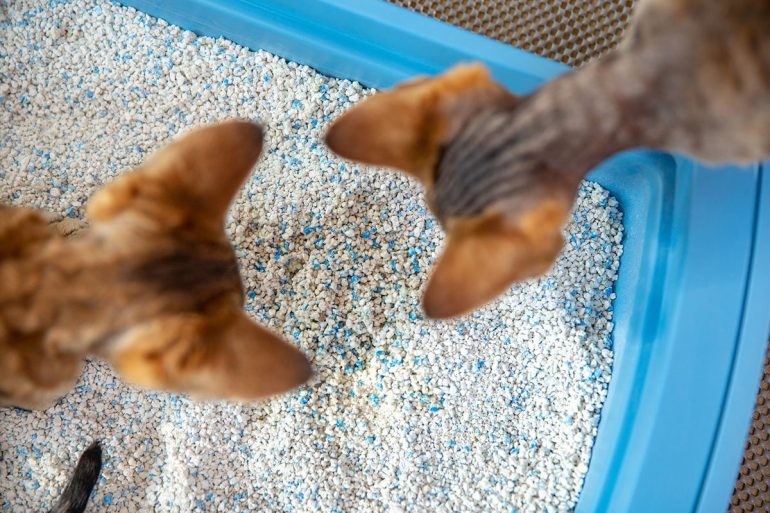Cats are crazy little mysterious critters who are always up to some of the other mischief to make their parents go bonkers. The list can be simply endless when you pen down the weird activities showcased by felines, one such activity is eating litter.
So, do you find your kitties having divine love for litter? Here is a quick guide that decodes the real reasons behind such a behavior:
What to do if your cat is eating cat litter?
If you find your cats eating litter frequently, you can start by changing their litter boxes and replacing them with other nontoxic and natural materials such as paper, grass, etc.
On the contrary, make sure to take your kitties to a vet because eating litter may be a sign that your cat is suffering from anemia or may have underlying kidney disease and thus needs to be addressed before it’s too late.
There are also chances that your cats may have a deficiency of certain vitamins that forces them to eat litter, so get it checked by a vet and include the necessary ones in your cat meals to replenish their needs of vitamins.
Why a cat would eat litter?
Kidney disease
Though it may sound surprising, yes, underlying kidney disease may make your cats prone to eat litter. Other symptoms of kidney disease include vomiting, weight loss, weakness, and depression in cats.
Feline Leukemia
Leukemia can be thought of as a virus that can be transferred between felines via their feces, saliva, urine, and blood. Such a condition may also give birth to blood cancer or anemia, which causes the red cell counts to lower down, further affecting the carriage of oxygen to the different parts of a feline’s body.
You can also make out if your cats are anemic if they have white eyes, yellow color inside the mouth, respiratory infections, or pale gums.
Curiosity
Sometimes it may not be a disease or an underlying condition that causes your cats to eat litter but their curious minds. A few of them may simply be trying to gobble down the litter particles to find out and explore how actually those litter grains do and pellets taste.
Swallowing those clumps can cause blockages in their intestine, thus, it is mandatory to keep an eye on your cats when they are exploring their litter boxes.
Separation from their mothers at an early stage
Kittens learn a lot from their mothers, just as we humans do. May it be about keeping themselves clean, litter habits, or the act of burying their waste, these habits are passed on and trained by the cat mothers. If the kitties are separated from their moms at a very early stage, the chances are that they might not be aware of the litter habits and may tend to eat litter instead of burying their feces in it.
How to stop your cat from eating litter?
If your cats have already started chewing the litter materials, here are a few things that you can try out to stop your kitties from gulping those litter pellets.
Giving them alternatives to feed their curiosity
Cats are curious creatures which may make them wonder and taste the litter to find out what it is all about. So, in order to cut down their curiosity towards litter and to divert their minds, you can consider giving them catnips or cat grass to let them have some purr-fect fun.
Another way to cut down the curiosity level in your cats to find out what is there in their litter box, is to give your kitties chewable cat toys to sidetrack their attention.
Switching to non-clumping litter
Clumping litter is more dangerous if swallowed. Thus, as a precautionary step, you can switch to using non-clumping litter and biodegradable kitty-safe litter to keep your felines at bay from swallowing clumping litter.
Monitoring cats while they use litter boxes
In order to save your felines from swallowing litter, you should monitor them while they use the litter boxes and take them out immediately when they finish doing their business.
We hope now you have all the answers as to why your cats have been behaving weirdly and swallowing litter. Cat cravings for a litter can indeed be controlled by using the above-mentioned methods.
Do you have more such ideas to cut down on their unusual inclination towards eating litter? Do let us know!

